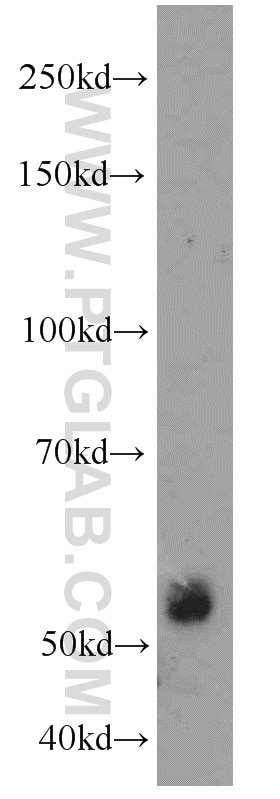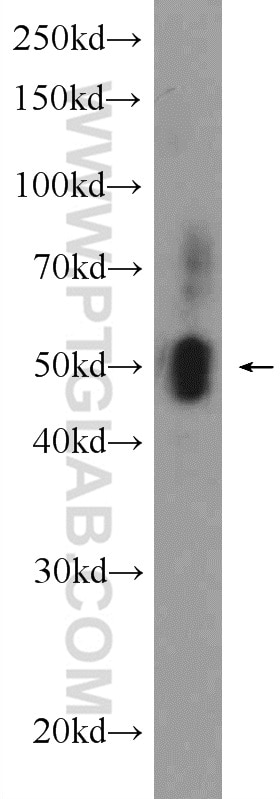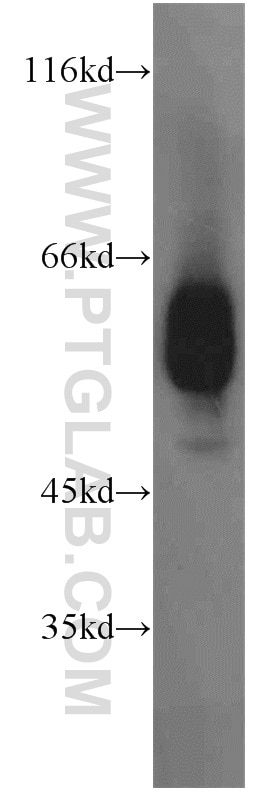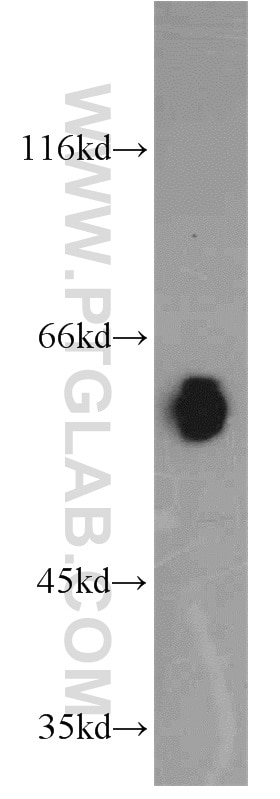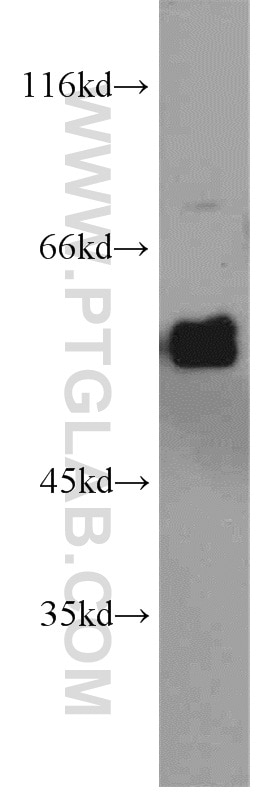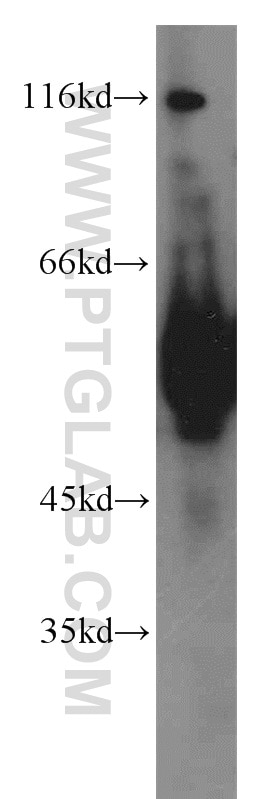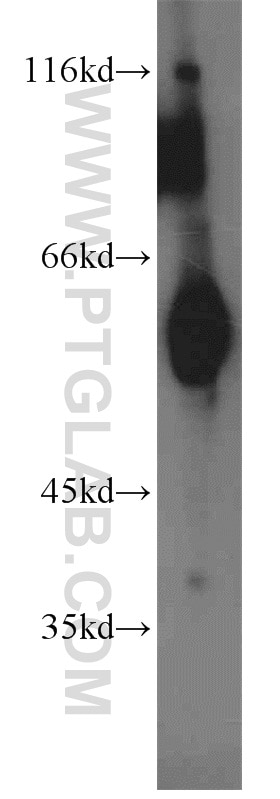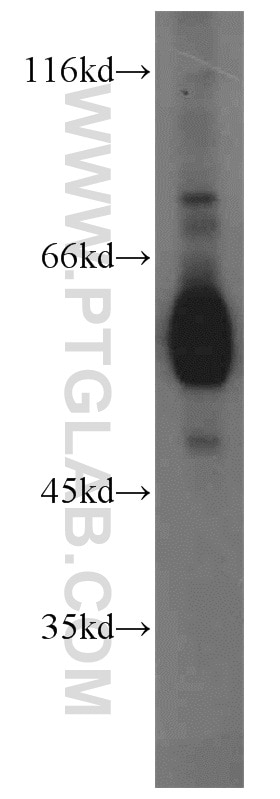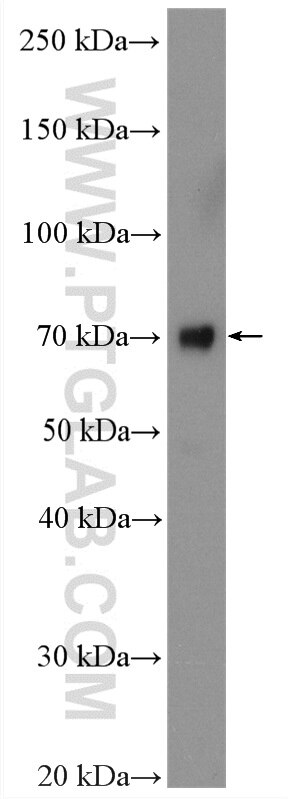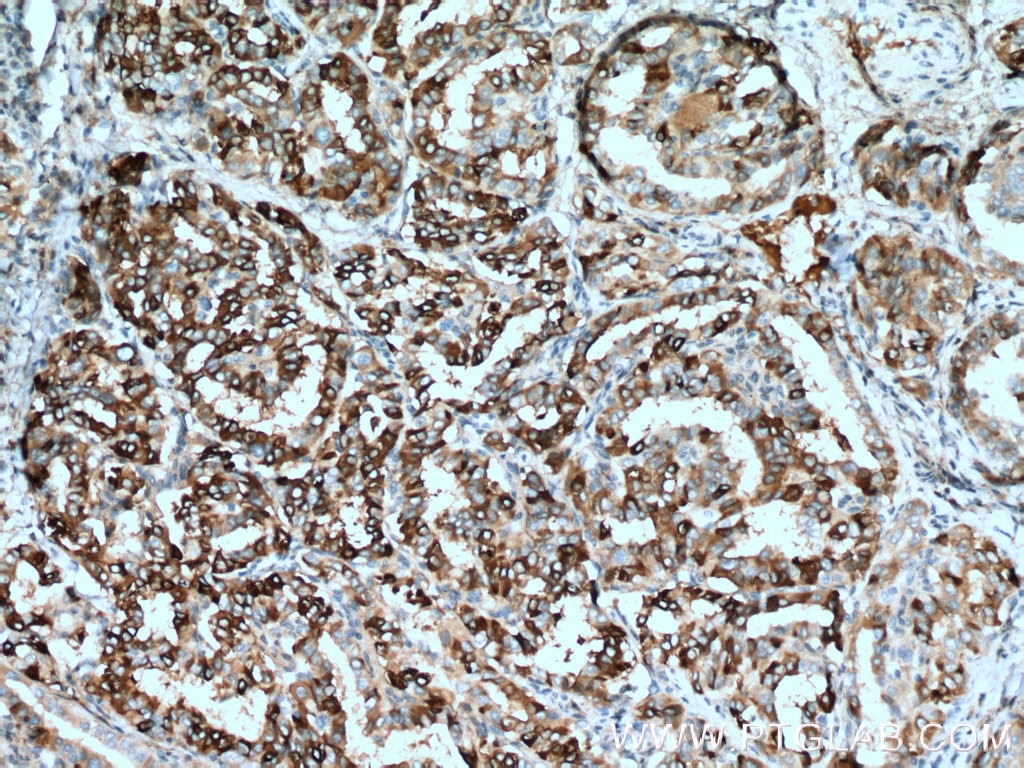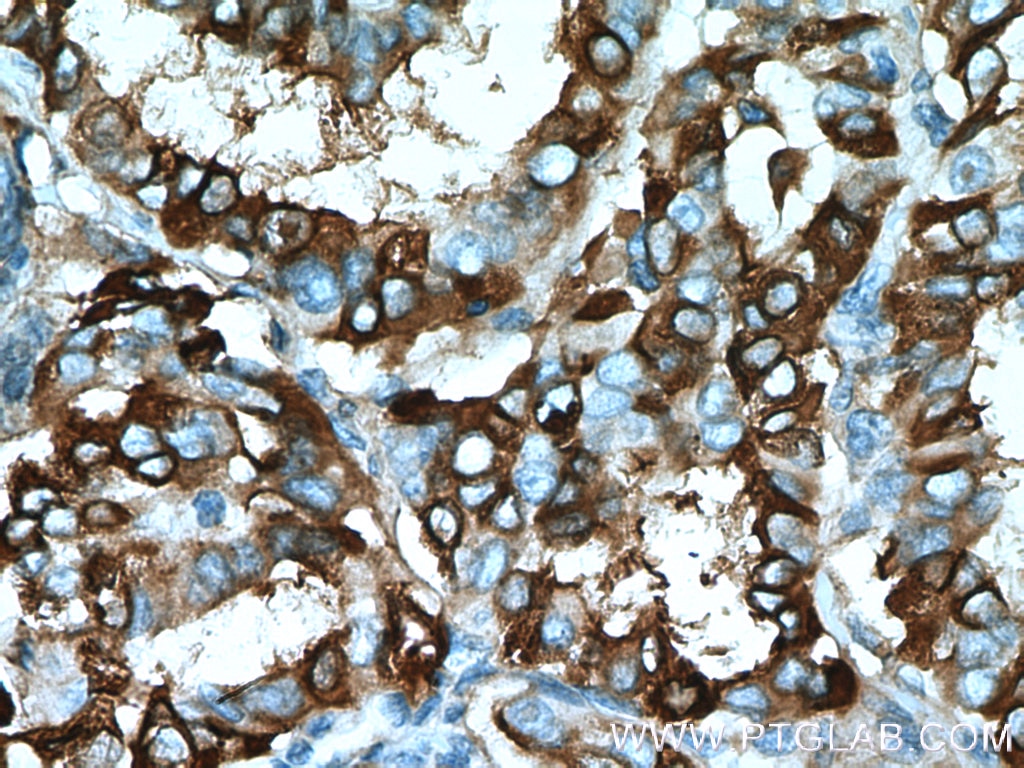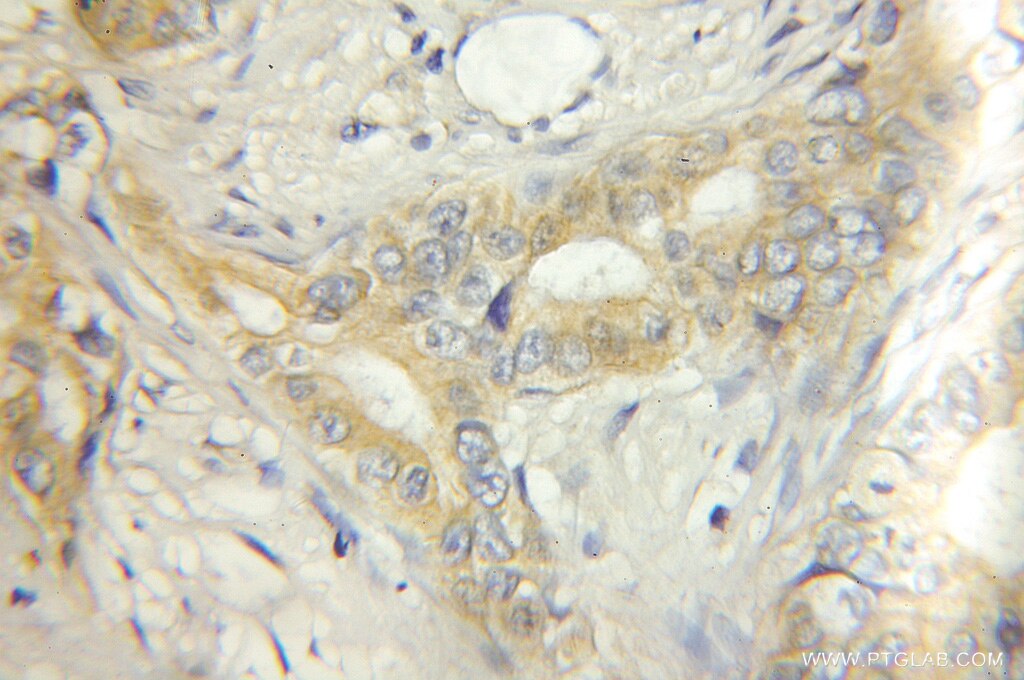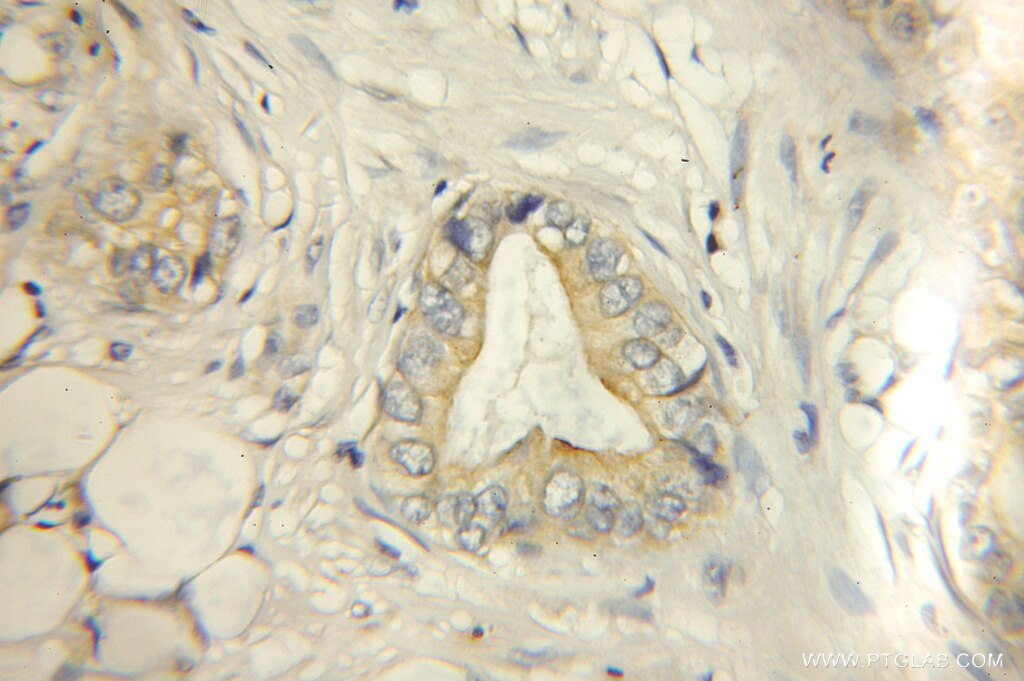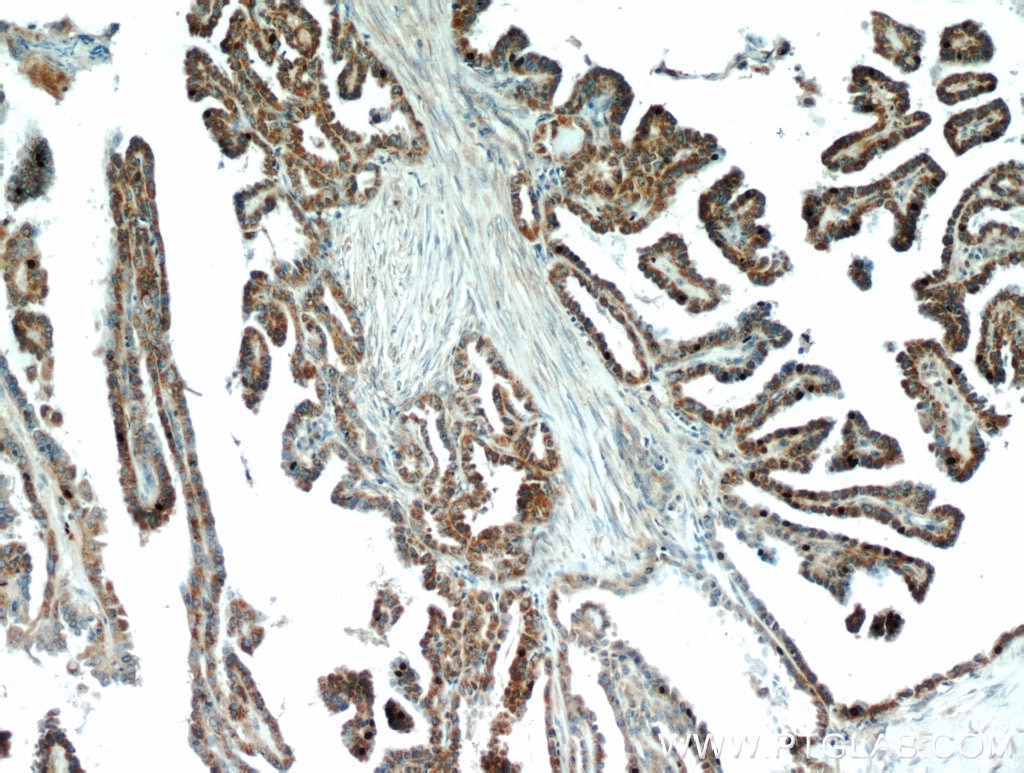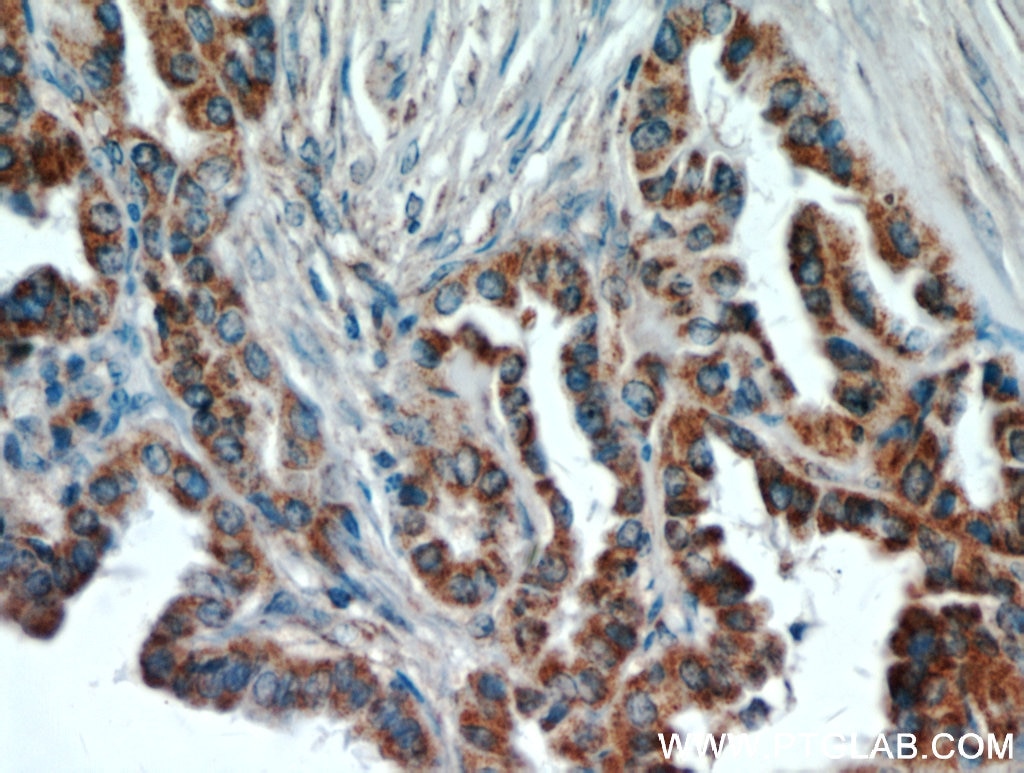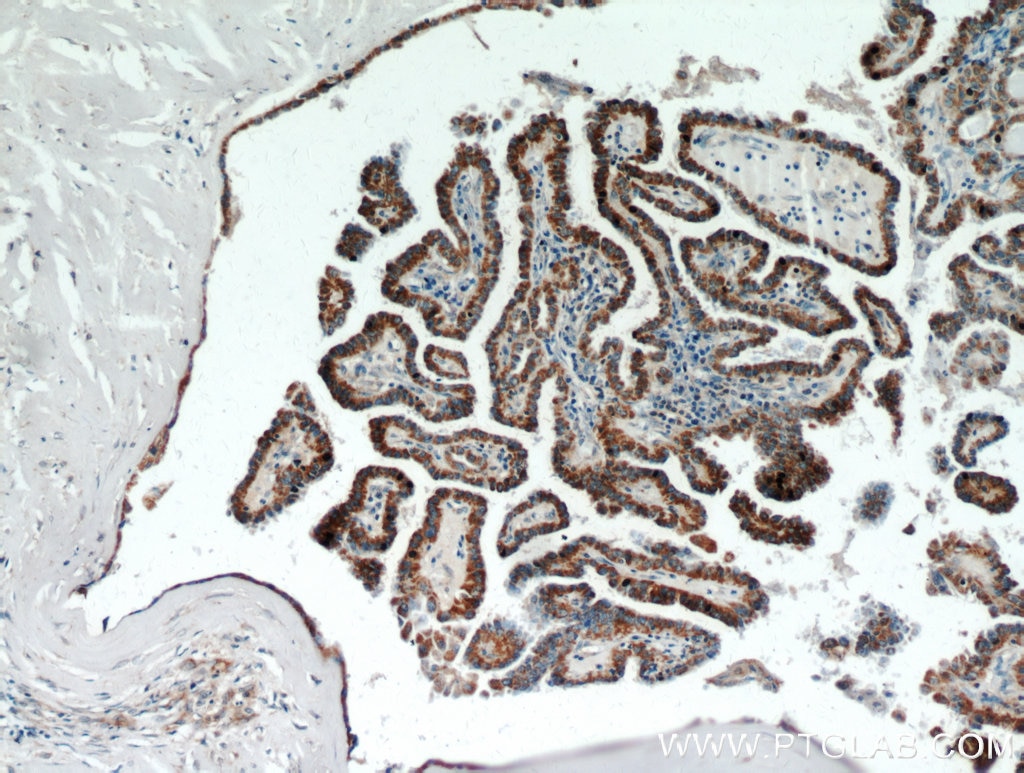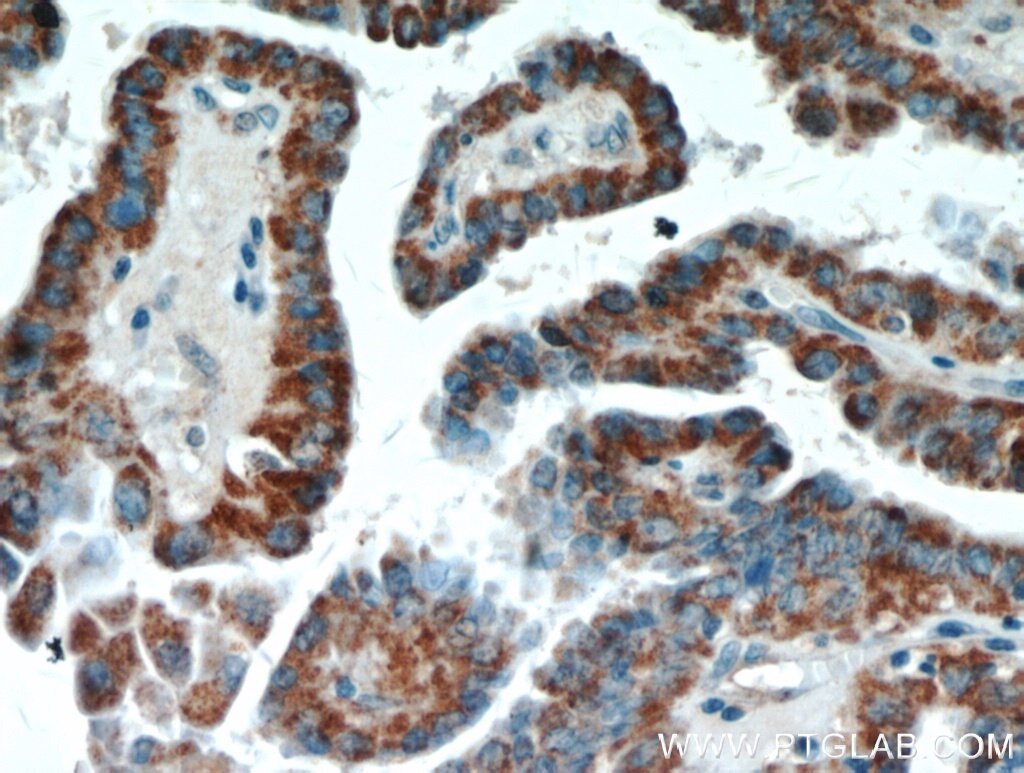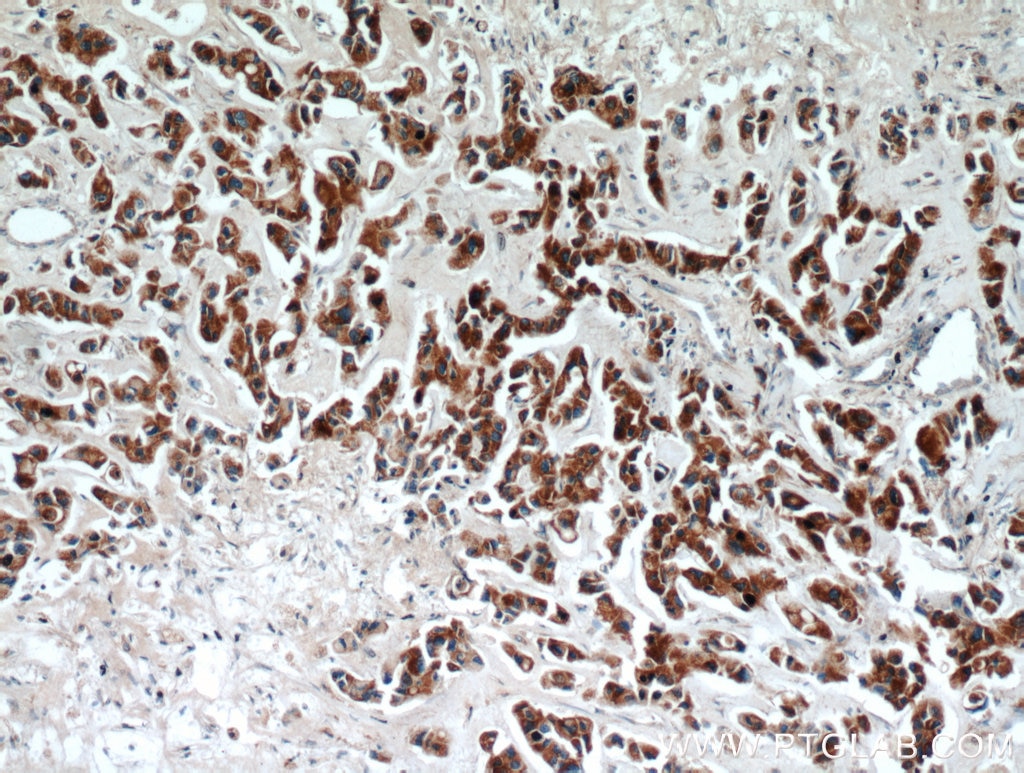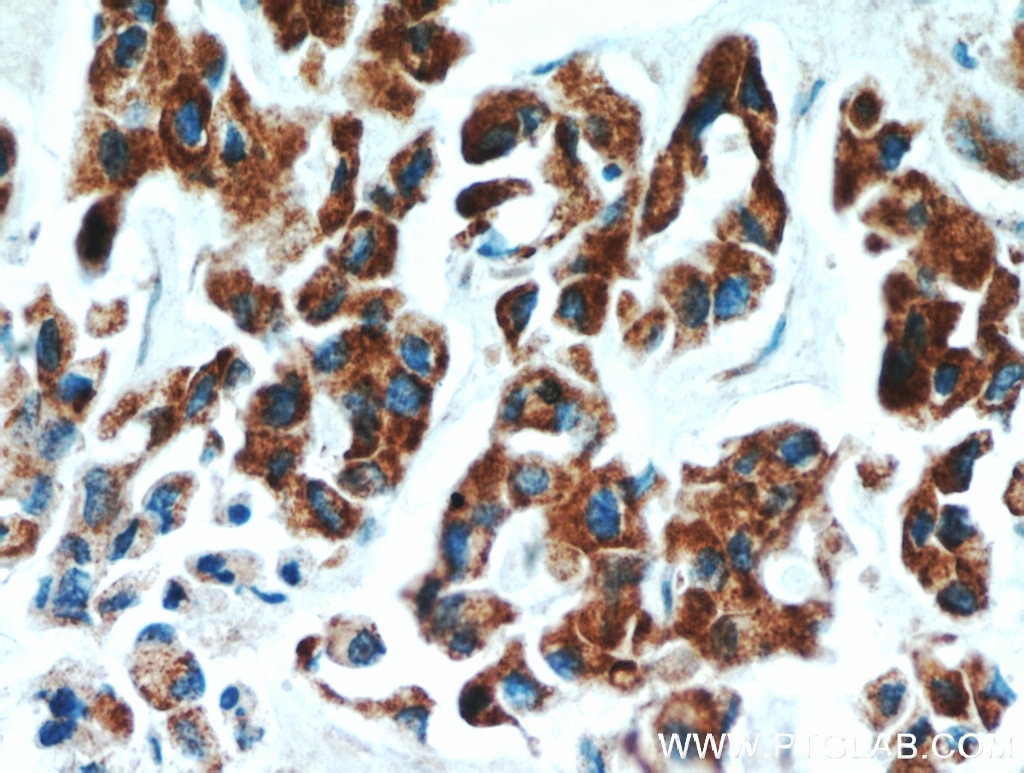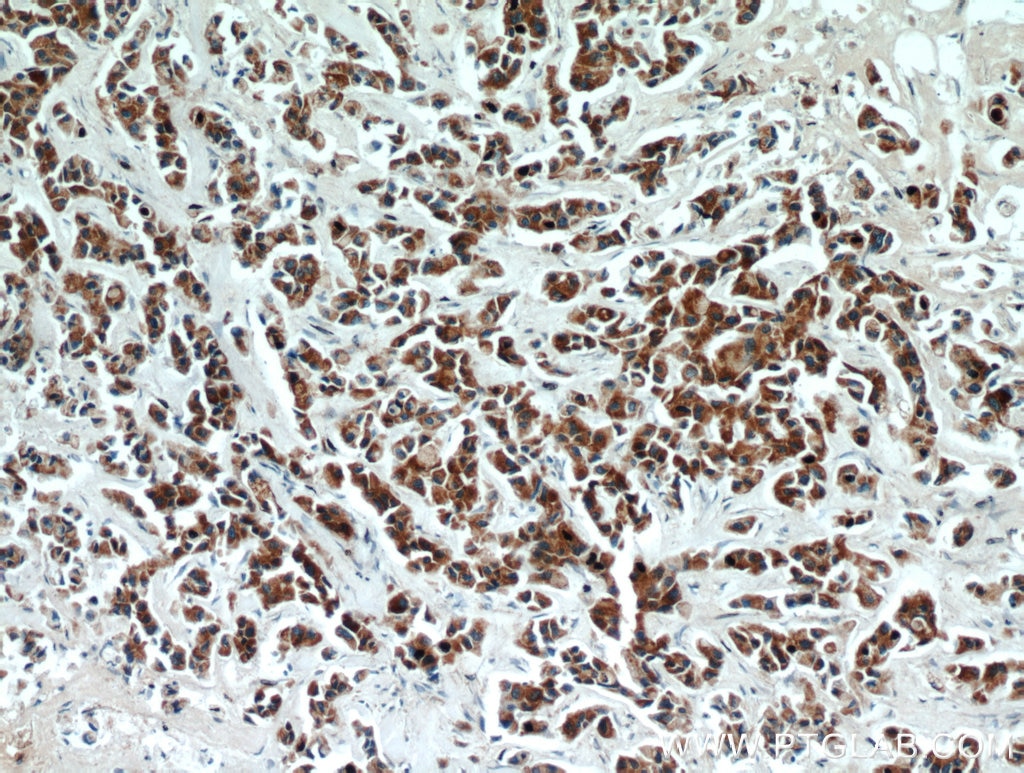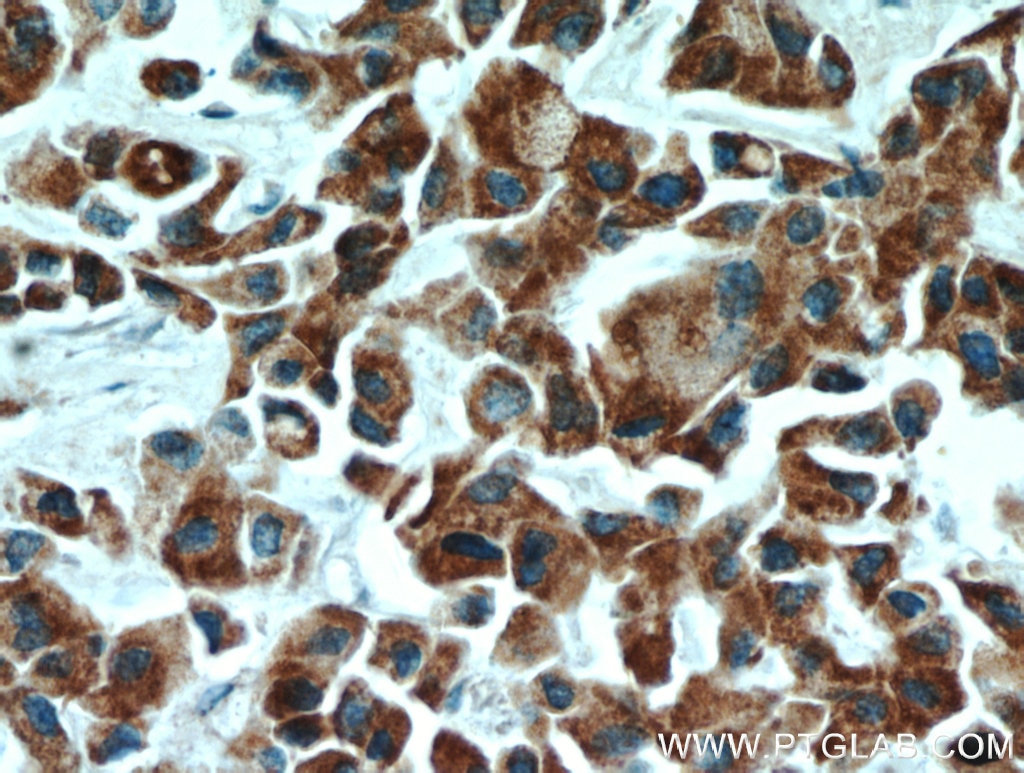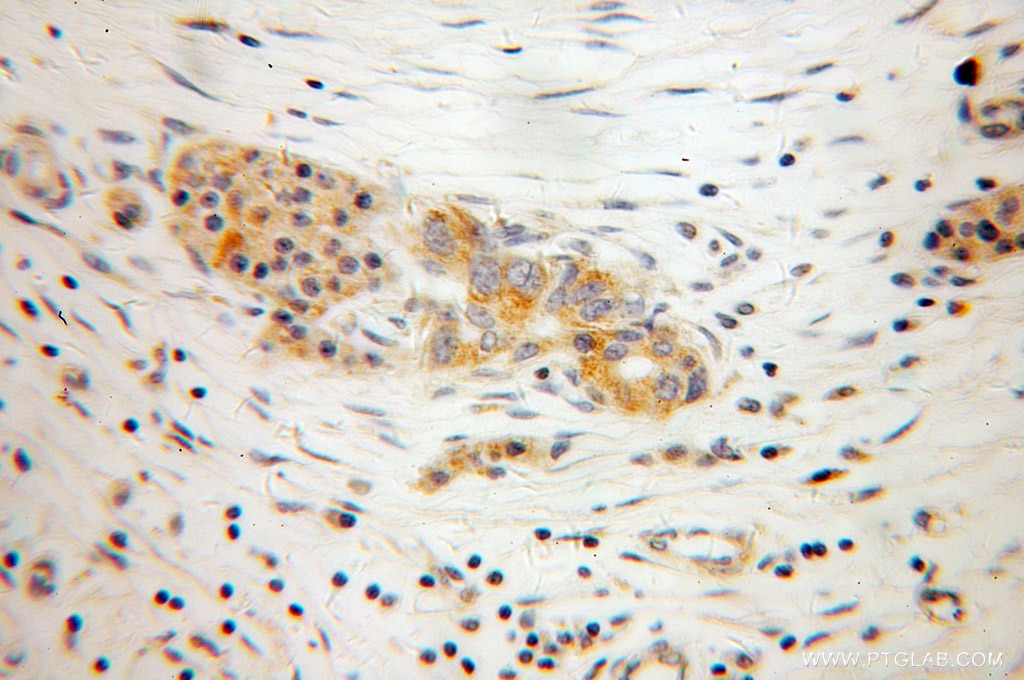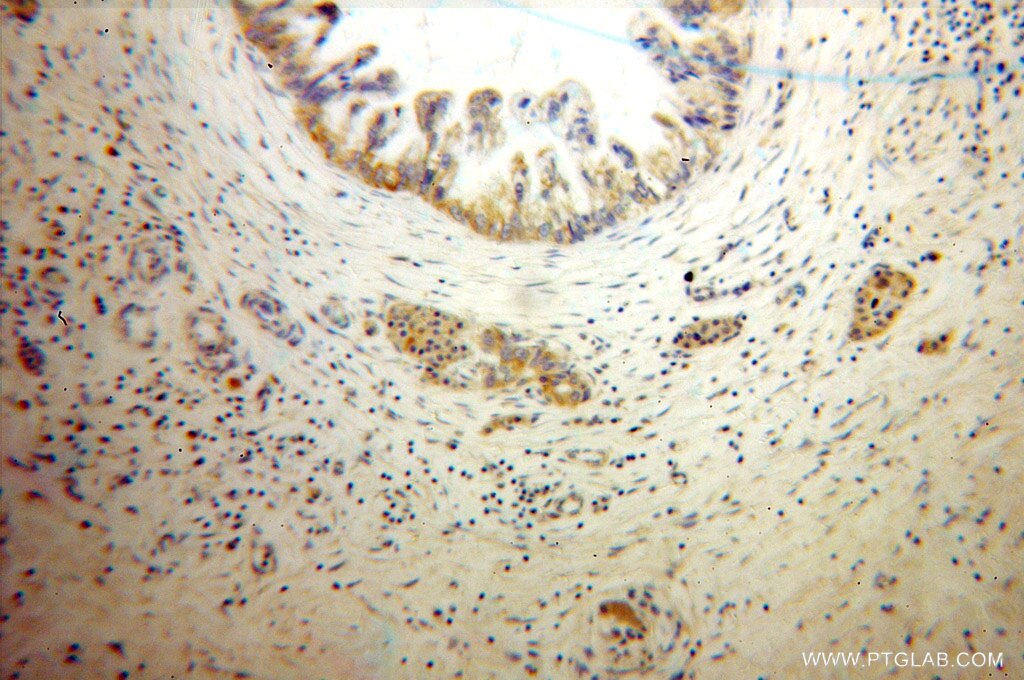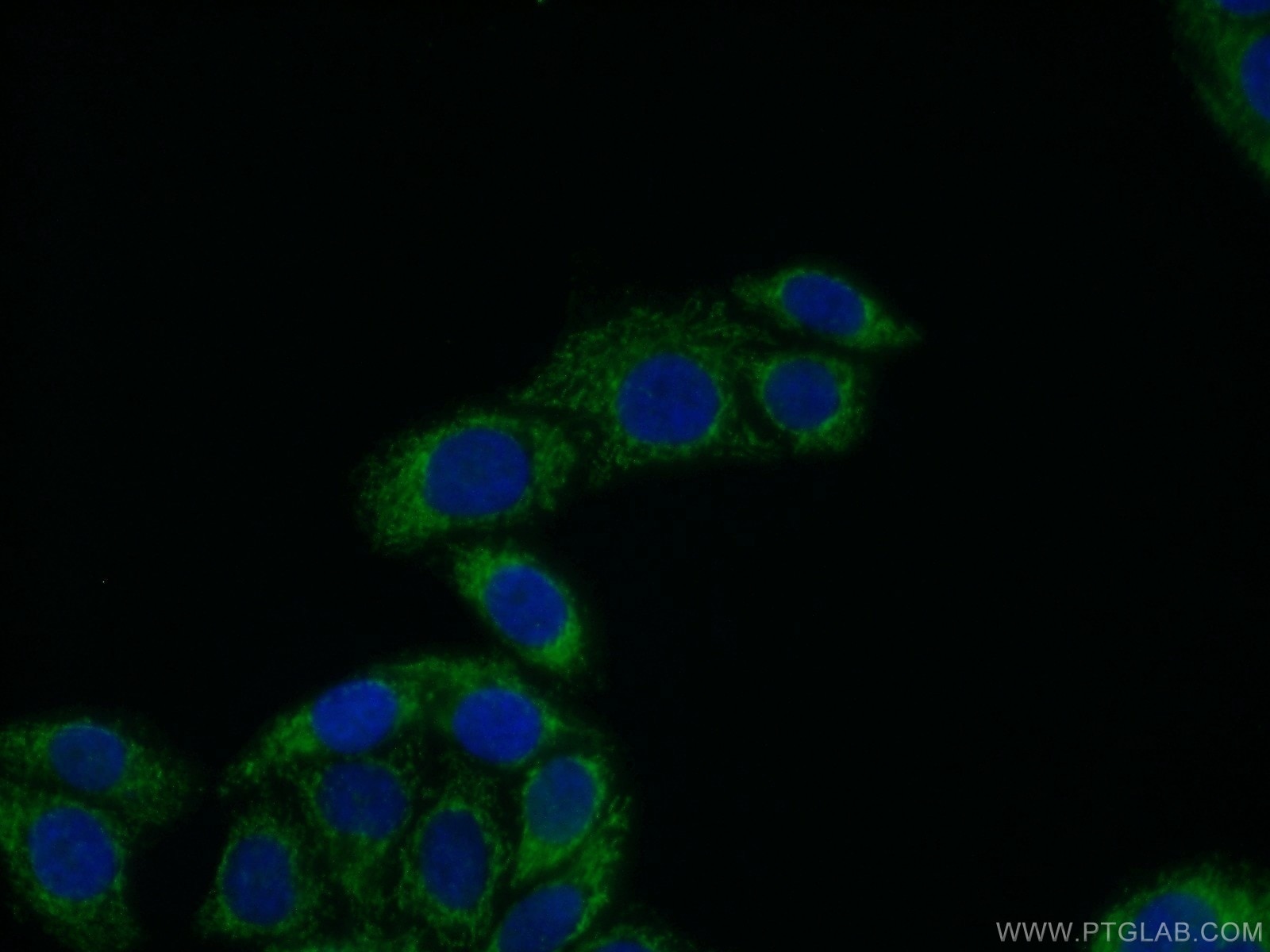Tested Applications
| Positive WB detected in | A549 cells, L02 cells, HepG2 cells, mouse liver tissue, mouse kidney tissue, MCF-7 cells, mouse pancreas tissue, rat pancreas tissue, A375 cells |
| Positive IHC detected in | human thyroid cancer tissue, human breast cancer tissue, human lung cancer tissue, human pancreas cancer tissue Note: suggested antigen retrieval with TE buffer pH 9.0; (*) Alternatively, antigen retrieval may be performed with citrate buffer pH 6.0 |
| Positive IF/ICC detected in | HepG2 cells |
Recommended dilution
| Application | Dilution |
|---|---|
| Western Blot (WB) | WB : 1:500-1:2000 |
| Immunohistochemistry (IHC) | IHC : 1:100-1:400 |
| Immunofluorescence (IF)/ICC | IF/ICC : 1:50-1:500 |
| It is recommended that this reagent should be titrated in each testing system to obtain optimal results. | |
| Sample-dependent, Check data in validation data gallery. | |
Published Applications
| WB | See 17 publications below |
| IHC | See 13 publications below |
| IF | See 6 publications below |
| IP | See 1 publications below |
Product Information
11521-1-AP targets ECM1 in WB, IHC, IF/ICC, IP, ELISA applications and shows reactivity with human, mouse, rat samples.
| Tested Reactivity | human, mouse, rat |
| Cited Reactivity | human, mouse, canine |
| Host / Isotype | Rabbit / IgG |
| Class | Polyclonal |
| Type | Antibody |
| Immunogen |
CatNo: Ag2084 Product name: Recombinant human ECM1 protein Source: e coli.-derived, PGEX-4T Tag: GST Domain: 241-540 aa of BC023505 Sequence: MSRFCEAEFSVKTRPHWCCTRQGEARFSCFQEEAPQPHYQLRACPSHQPDISSGLELPFPPGVPTLDNIKNICHLRRFRSVPRNLPATDPLQRELLALIQLEREFQRCCRQGNNHTCTWKAWEDTLDKYCDREYAVKTHHHLCCRHPPSPTRDECFARRAPYPNYDRDILTIDISRVTPNLMGHLCGNQRVLTKHKHIPGLIHNMTARCCDLPFPEQACCAEEEKLTFINDLCGPRRNIWRDPALCCYLSPGDEQVNCFNINYLRNVALVSGDTENAKGQGEQGSTGGTNISSTSEPKEE Predict reactive species |
| Full Name | extracellular matrix protein 1 |
| Calculated Molecular Weight | 540 aa, 61 kDa |
| Observed Molecular Weight | 55-61 kDa |
| GenBank Accession Number | BC023505 |
| Gene Symbol | ECM1 |
| Gene ID (NCBI) | 1893 |
| RRID | AB_2261964 |
| Conjugate | Unconjugated |
| Form | Liquid |
| Purification Method | Antigen affinity purification |
| UNIPROT ID | Q16610 |
| Storage Buffer | PBS with 0.02% sodium azide and 50% glycerol, pH 7.3. |
| Storage Conditions | Store at -20°C. Stable for one year after shipment. Aliquoting is unnecessary for -20oC storage. 20ul sizes contain 0.1% BSA. |
Background Information
Extracellular matrix protein 1 (ECM1) is a glycoprotein involved in a number of biological processes such as bone formation, skin differentiation, cell proliferation, and promotes angiostasis.ECM1 is expressed in breast cancer and could participate in cell migration and angiogenesis. Pathologically, ECM1 contributes to the formation and metastasis of several types of cancer including breast, thyroid and hepatocellular cancers.(PMID:21128013) It inhibits MMP9 proteolytic activity. ECM1 protein is a possible trigger for angiogenesis, tumor progression and malignancies(PMID:21497598).
Protocols
| Product Specific Protocols | |
|---|---|
| IF protocol for ECM1 antibody 11521-1-AP | Download protocol |
| IHC protocol for ECM1 antibody 11521-1-AP | Download protocol |
| WB protocol for ECM1 antibody 11521-1-AP | Download protocol |
| Standard Protocols | |
|---|---|
| Click here to view our Standard Protocols |
Publications
| Species | Application | Title |
|---|---|---|
Cancer Lett Liver metastasis or peritoneal metastasis: single-cell RNA sequencing reveals the organotropism in colorectal cancer is driven by distinct partial-EMT processes | ||
Dev Cell Spatial Control of Primary Ciliogenesis by Subdistal Appendages Alters Sensation-Associated Properties of Cilia. | ||
Cell Mol Life Sci Crip2 affects vascular development by fine-tuning endothelial cell aggregation and proliferation | ||
Oncogene Extracellular matrix protein 1 promotes cell metastasis and glucose metabolism by inducing integrin β4/FAK/SOX2/HIF-1α signaling pathway in gastric cancer. | ||
J Biol Chem Phospholipid scramblase 1 is secreted by a lipid raft-dependent pathway and interacts with the extracellular matrix protein 1 in the dermal epidermal junction zone of human skin. | ||
Am J Transl Res miR-23a-5p inhibits cell proliferation and invasion in pancreatic ductal adenocarcinoma by suppressing ECM1 expression. |

